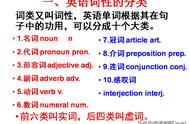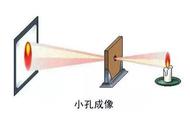一)介词及其语法功能
介词是一种虚词,不能单独作句子成分。介词后面一般有名词、代词或相当于名词的其他词类,短语或从句作它的宾语。介词和它的宾语构成介词词组,在句中作状语,表语,补语或定语。
The woman with a flower on her head is from the countryside.
头上戴花的妇女来自乡下。(作定语)
To my surprise, she finished the task within a week.
使我吃惊的是,她在一周之内完成了这项任务。(作状语)
The new flat being built now are for us students.
正在兴建的新公寓是给我们学生使用的。(作表语)
When he woke up, he found himself in hospital.
当他醒过来时,他发现自己躺在医院里。(宾语补足语)
二)介词的分类
1.根据介词的构成可分为以下几类
简单介词:about,for, after, behind,against等。
合成介词:without,into, inside,throughout,ithin等。
短语介词:in spite of,according to, instead of, in charge of等。
双重介词:from behind,from across, since before, until after等。
分词介词:considering, concerning, including, given等。
2.根据介词的意义可分为以下几类
1) 方位和空间关系的介词: over在…正上方,under在…正下方, on在…上面,beneath在…下面,below在…下方,above在…上方, across在…对面,through穿过;通过,past从…边上经过,at在…,in在…里面, near在…附近,by在…附近,beside在…旁边,to向, 到, towards朝向, between在…之间, among在…之中;在…之间,from从…,off掉;离开, into进,入,到…里,onto到…上,向…之上, after在…之后,behind在…后;落后于, inside在…里面, around在周围,up沿…往上;在…上面,opposite在对面,beyond远于;迟于;越出,round在…周围。
2) 表示时间的介词:about大约..., after在…以后, at在… 时刻,before在…以前,by到…为止, during在…期间, for有…之久,from从…时起, in在上/下午;在多久以后,on在(某日),past过了…时, since自从…至今, through 贯穿…期间, till直到…时,until直到…时, to到…时刻,ever since从那时起至今,at the beginning of在...开始时,at the end of在...末 ,in the middle of在...当中,at the time of在...时。
3) 表示工具、手段、方式等介词:like像,in用,with用, by用,on骑(车)/徒(步),over通过收音机。
4) 表示其它含义的介词: of 具有…性质,without 没有,besides 包括…在内,with 带有,except 除了,instead of代替,而不是。
三)主要介词用法归纳与辨析
1. 表示时间的介词
1) in的用法
表示在某一较长时间内,如世纪、朝代、年、月、季、周以及泛指上午、下午和傍晚等一般用介词in。
例如:in the 1990s, in the year, in January, in winter / summer / fall / spring,in the first week of May, in the morning (afternoon, evening)。
还可以用时段名词组成固定短语或词组。例如:in a while, in no time,in the daytime,in a short while, in time。
但要注意:
①in the day(在白天),in the night(在夜间)。
②in five days(weeks, months, years)中in意思是“在……以后”。
③in和during表一段时间内两词可互用。如:in the night, during the night, in the war, during the war。但略有区别:当接表示“活动”的抽象名词时多用during,接“活动”的动名词及短语时用in。如:
during the discussion in discussing the problem
during her stay in Hubei in playing basketball
during the course of in digging the tunnel
2) 在具体的某一天或某天上午、晚上、前夕,常用on。
on Sunday(s),on Tuesday morning
on Christmas Day(但at Christmas),on Christmas Eve, on Children’s Day
on March 8, on the morning (afternoon, evening)of Oct.1
early on the morning of Oct.1(区别:in the late / early morning of Oct.1)
on a rainy night, on warm winter days
3) 表示某一时刻或某一点时间用at, 例如小时、分钟等。
at breakfast(supper, lunch),at six
at noon (sunrise,sunset, midday night, midnight,dawn)
at the age of 15,at the time of war,但in time of danger/ trouble。
4) 表示不迟于某一时刻或在……期间用by。
by eight o’clock, by tomorrow/next Monday,by day,by night
5) till、until的用法。
till(until)与持续动词连用一般用于肯定句中,与短暂动词连用一般用在否定句中。例如:
He waited for me till twelve o’clock.
He didn’t get up till (until) 10 a.m. (不可用to).
但注意:在句首出现或强调句型中一般不用till而用until。例如:
Not until 9 a.m. did Mr. Smith come back to school.
6) in、after的用法
(1) in 一段时间:表示说话时为起点的一段时间之后,与一般将来时连用;但表示“在……之内”时,用于各种时态。
(2)after 一段时间表示:“在……之后”,用于一般过去时;但时间为点时间时,只能用after,即after 点时间,用于各种时态。
She learnt to drive in three weeks.
她用了三个星期学会了开车。
The doctor will be with us in six minutes.
6分钟之后,医生将会和我们在一起。
He received her letter after four weeks.
4周后,他收到了她的来信。
He will come back after three o’clock this afternoon.
今天下午三点以后他会回来。
另外,in 一段时间 ‘s time 与 within 一段时间的用法如下:
in a week’s time = in a week
They will arrive in three days’ time.(与将来时连用)
My brother’s birthday is in two weeks’ time.(作表语)
I’ll finish the book within two weeks.(within = in less than…用于各种时态,不超出,在……之内)
7) from、since和for的用法。
(1) from 时间点,表示行为或状态的起始点,而不涉及持续时间的长短。例如:
My daughter began to learn piano from the age of four.
我女儿从四岁开始学钢琴。
(2) for 时间段,表示行为或状态持续了多久。例如:
Mr. Black lived in London for twenty years.
布莱克先生在伦敦住了二十年。
(3) since 时间点,既可以表示时间或状态的起始点,也可以强调该行为或状态从起始点一直持续到此时此刻,因此与延续性动词的完成时态连用。例如:
She has worked in this company since five years ago.
她从五年前起就在这家公司上班了。
2. 表示地点的介词
1) at 在较小的场所,in在较大的场所,on在……的平面上。例如at the door、at the airport、at the station、at 55 Park Street、in China、in the north、in Asia、on the desk、on the wall等。
2) on、at、in还可以表示两地相对位置。若A地属于B地,用in; A地位于B地的外面且有边缘衔接用on;无边缘的衔接有to。例如:
Japan lies to the east of China. (范围之外)
Taiwan lies in the southeast of China.(范围之外)
Hunan province lies on the west of Hubei province. (毗邻)
3) across在物体表面“穿过”;through则表示在三维空间内部“穿过”。例如:
They walked across the playground.
他们走过操场。
I walked through the forest.
我穿越了森林。
4) over、under、 above 、 below、on、beneath
over、above、on译作“在……之上”;under、below、beneath译作“在……的下面”,其区别在于over、under表示一种直接的、垂直的上下关系;而above、below则表示一般的“高于”或“低于”,不一定是垂直“在上”或“在下”;on、beneath表示两者之间表面是接触的。例如:
A little boat is now under the bridge.
桥下有一条小船。
There is a bridge over the river.
河上有一座桥。
The sun sinks below the horizon.
太阳落到了地平线之下。
The water came above our knees.
水没过了我们的膝部。
Leave the glasses on the table.
杯子就在桌上放着吧。
They found the body buried beneath a pile of leaves.
他们在一堆树叶下面发现了那具尸体。
5) from、out of
两词均表示来源或出处,from注重起点,意为“从……”;out of侧重从里向外,意为“从……里出来”。例如:
Has the train from London arrived?
伦敦来的火车到了吗?
Fish can survive for only a short time out of water.
鱼离开水後活得时间很短。
3. 表示方式、手段、工具的介词
1) by表示买卖东西所按以计算的数或量,或付酬所按以计算的时间
by the year /the hour /the day /the pound /the metre 按年/小时/天/镑/米。例如:
Apples are sold by the pound.
苹果按磅出售。
Milk is sold by the pint, butter by the pound and eggs by the dozen.
牛奶论品脱卖,黄油论镑卖,蛋类论打卖。
但是注意下面这几个表达:by weight按重量,by length按长度,by distance按距离,这些表达中不含冠词。
2) by、in 、on三词表示旅行的方式
(1) 不涉及交通工具的名词时用by,名词前不带冠词。例如:
by sea,by water, by land, by rail,by air等。
(2) 涉及交通工具的名词时用by,但名词为单数形式,名词前不带冠词或任何修饰语。例如:
by bus,by train,by car,by taxi,by bike,by plane,by jet,by spaceship,by ship,by boat,by lifeboat等。
(3) 当旅行方式涉及确定特指的交通工具时,用on或in,名词前应有冠词、物主代词、指示代词等修饰语。例如:in a plane, on an early train, on his bike等。
注意:步行、骑马、骑骆驼均用on。例如:
on foot, on horseback, on a horse, on the camel。
3) with、by 、in三词均译为“用”,表示行为的工具、手段或方式
(1) with用于有形的工具或身体某些器官之前,其后的名词多被冠词、物主代词等修饰。例如:
He beat the dog with a whip.
他用鞭子打那条狗。
We smell with our noses.
我们用鼻子闻东西。
(2) by、in 、on (over, through)等多用于无形的工具或方式手段之前。例如:
by hand,in ink,on the telephone, over the radio, through the telephone等。
注意:使用语言、材料、文字等用in。例如:in English,in ink, in pencil。表达“用……方法/方式”时,所用介词分别为:in this way, by this means,with this method, in this approach。
4. 表示“除……之外”的几组常用介词。
1) but和except都表示“除…之外,没有”,有排除在外或不包括在内的意思,两者大多数
情况下可以互用,都可以接名词,代词,动名词和原形动词;但except后面还可跟副词,介词短语等,此时,不能用but来代替。
He has always been in high spirits except recently.
除了近来一段时间,他总是情绪高昂。
The window is never opened except in summer.
除了夏天,这扇窗从未开过。
当except位于句首时,后面往往要加上for。例如:
Except for this, everything is in good order.
除了这以外,一切都井井有条。
2) no,all,nobody,nothing,no one后多用but。
No one knew the truth but Mr.Smith.
除了史密斯先生,没人知道真相。
Nobody but you could be so selfish.
除了你之外,谁也不会这样自私。.
Nothing but trouble will come of this plan.
这个计划只能带来麻烦。
3) except for“除…之外;要不是”,用于订正或修正某些事实。
The new house is excellent except for the small kitchen.
除了厨房小一点以外,这套新居还是非常好的。
I can answer all the questions except for the last.
所有的题我都会答, 只是最後一题不会。
4) besides “除…之外,还有”,含有包括在内的意思。相当于in addition to 。
There will be five of us for dinner besides John.
除约翰外, 还有我们五个人要一起吃饭。
The play was badly acted, besides being far too long.
这出戏除了太长之外, 演得也不好。
在否定句中,besides和except两词可以换用,例如:
She has no relations besides / except an aged aunt.
她除了有一个年老的伯母以外, 再没有亲戚了。
No one writes to me besides / except you.
除你以外,没有人给我写信。
5) 如果被排除在外的内容为一个句子,则应使用except 连接词。
He usually goes to work on foot except when it rains.
除了下雨之外,他总是步行上班。
She remembered nothing (about him) except that his hair was black.
她(对他)什么都不记得,只记得他的头发是黑的。
The two books are the same except that this one has an answer key at the back. 除了这本书后面有问题答案以外, 这两本书完全一样。
6) 注意以下几个短语:
can do nothing but do sth 除了做某事之外什么也做不了
There be nothing to do but do sth 除了做某事之外无事可做
have no choice but to do sth 除了做某事之外别无选择
例如:
She could do nothing but stayed at home.
除了呆在家里她什么也做不了。
I had no choice but to ask for his mercy.
除了祈求他的怜悯,我别无选择。
7) apart from既可表示包括在内又可以表示排除在外。
Apart from the cost, we need to think about how much time the job will take.
除了费用之外,我们需要考虑这项工作所要花费的时间。
We didn't see anyone all day, apart from a couple of kids on the beach
.除了海滩上的几个孩子,我们一整天都没有看到别的任何人。
5. between与among.
between通常指两者之间。也可以用于三者以上的两者之间。例如:
I lost my keys somewhere between the car and the house.
我的钥匙失落在汽车与房子之间的什么地方了。
Peter sat between Mary and Jane.
彼得坐在玛丽和简之间。
Switzerland lies between France, Germany, Austria and Italy.
瑞士位於法国﹑ 德国﹑ 奥地利和意大利之间。
She divided her possessions equally between her four children.
她把自己的财物平均分给了她的四个孩子。
among表示三者以上之间。例如:
He found it amongst a pile of old books.
他是在一堆旧书中找到它的。
Among those present were the Prime Minister and her husband.
那些出席者中有首相及其丈夫。
We must agree among ourselves.
我们必须达成共识。
London is among the largest cities. ( = one of与最高级连用)
伦敦是最大的城市之一。
6. 表原因的介词for、because of、due to, owing to
because of是普通用语,使用范围最广。例如:
He didn’t come because of the snow.
他因下雪没来。
due to往往强调由…直接造成的原因。due to习惯上不能位于句首。例如;
The trouble was all due to his bad behavior.
麻烦是由他的不良行为造成的。
The delay was due to heavy traffic.
拖延是由交通拥挤造成的。
The flight was cancelled due to the fog.
班机因雾停飞。
owing to与due to意思相同,但其常位于句首。例如:
She can’t come owing to illness.
由于身体不好,她不能来了。
Owing to bad weather, all the buses were late.
由于天气不好,所有公交车都晚点了。
Owing to the drought, crops are short.
由于天旱,收成不好。
for主要用于表示理由,对前面所说的内容进行解释。例如:
We must start early, for it will take two hours to drive to the airport.
我们得早点动身,因为开车去机场得花两个小时。
He never read these books, for he had long lost the habit of reading.
他从不读这些书,因为他早就丢掉了阅读习惯。
注意:for 表示理由时不能放在句首,也不能单独引导一句子。
7. 不定式复合结构中的for、of。
这里所说的不定式复合结构形式指的是for 或of加上人或事,作动词不定式逻辑主语的结构。即It be adj. for sb to do sth / of sb to do sth
注意:本句型常见的考点为不定式的逻辑主语是用for sb还是of sb来表示。一般而言,如果这个句型中的形容词是表示人的性格和品质,那么应该用of sb来做不定式的逻辑主语。常见的这类形容词有:kind, nice, good,polite, wrong,right, careful, careless, rude, impolite, naughty, foolish,silly,stupid等。
It is good of you to help people in trouble.
帮助那些有麻烦的人,你真是太好了。
It is impolite of you to spit in public places.
你在公共场所吐痰是没有礼貌的。
It is important for us to learn English better.
对于我们来说,更好地学好英语是很重要的。
8. on与in表示所处的状态
1) on用于表示动态状况,如正在从事某项活动或处于某种运动状态之中。例如:on business, on a visit, on strike, on the march,on sale,on show, on watch, on fire, on holiday等。
2) in多用于表示静态状况,如安全、危险、健康、情绪等。例如:in trouble, in danger,in surprise, in silence, in peace等。
9. to 情感名词
to与情感名词连用,表示某种行动后所产生的感觉。例如:to one’s horror, to one’s disappointment, to one’s delight, to one’s sorrow,to one’s regret等。为了强调,可在前面加much或greatly。
10.of 名词
1) of 抽象名词=形容词。例如:
a women of wealth/wisdom/courage=a wealthy/wise/courageous woman
这一结构可用于说明主语的性质,例如:
I don't want to hear what you are saying. It is of no interest to me.
我不想听你说,我对此不感兴趣。(of no interest=not interesting)
Doing morning exercises will be of benefit to your health.
做早操对你的健康有利。
Coal is of great importance to the development of industry.
煤对工业发展是相当重要的。(of great importance=very important)
常用于这一结构的修饰语有great, little ,some ,any, no, much等。常见的抽象名词有importance, value, use, help, benefit (利益、好处),significance (意义、重要性) 等。
2) of 名词结构中的名词表种类、数量、度量等时,表示不同的人或物的共同特征。常用的名词有size,kind,type,price,heigh,depth,width,length,weight,ag,shape,colour等。例如:
We are of the same age.
我们同岁。
The twin sisters are of a size and the skirt fits each of them exactly.
双胞胎姐妹的身材一样,这件裙子两个人穿都非常合适。
Machines are of different types and sizes.
机器有不同的型号和规格。
Coins may be of different sizes, weights, and shapes and of different metals.
钱币从大小、重量、形状到材质都各不相同。
Her eyes are of a dark gray color.
她的眼睛是深灰色的。
3) of 名词结构可以表示主语的根源关系,此时的名词多是表示亲属、血统、种族、国籍及出处的名词,常用的名词有family,blood,race,origin等。例如:
We are of the same blood.
我们是同一家族。
They are of noble race.
他们出身名门。
4)of 名词相当于形容词,在句中可以作表语、后置定语或宾语补足语。例如:
Flowers are of many colours.
花的颜色很多。
New Zealand wine is of high quality and is sold all over the world.
新西兰葡萄酒质量很高,行销全世界。
Your sister is a girl of wisdom.
你妹妹是一位有智慧的女孩。(=Your sister is a wise girl.)
We don't think there is anything of interest in your pictures.
我们认为你的画并没有什么有趣的地方。(=We don't think there is anything interesting in your pictures.)
He found himself of absolutely contradictory points of view.
他发现自己处于完全矛盾的观点之中。
11. as、like
两个词都可以表示“像……”,但作此义讲时,as为连词,后面接句子;like为介词,后面接名词、代词等。此外as作介词时,还有“作为……”之意。
Why didn't you catch the last bus as I told you to?
你怎么不听我的话赶乘末班公共汽车呢?
I respect him as a writer and as a man.
我尊重他这位作家,也尊重他这个人。
She looks a bit like the Queen.
她长得有点像女王。
That sounds like the postman.
听声音像是邮递员。
It's just like her to tell everyone about it.
只有她才会把那件事见谁就告诉谁。
12. with结构
(1) with n adj.
He stared at me with his mouth open.
他张着嘴凝视着我。
(2) with n adv
The boy stood there, with his head down.
这男孩低着头站在那。
(3) with n 介词短语
He stood with his hand in his pocket.
他站着,一手插在衣袋里。
(4)with n 动词不定式
With no one to talk to, John felt miserable.
由于没有可谈话的人,John觉得很悲伤。
(5)with n 现在分词
With prices going up so fast, we can't afford luxuries.
由于物价迅猛上涨,我们买不起高当商品。
(6)with n 过去分词
With her eyes fixed on the opposite wall, she did not answer immediately.
她的眼睛盯着对面的墙壁,她没有立即回答。
13. 兼作连词和副词的介词
1) after、since、till /untill、before这些词既是介词,又是连词。
The children went home at once after school. ( after为介词)
They went to bed after they had finished the job. ( after为连词)
2) in、on、along、down、up、after、before、along、beyond等介词可兼作副词。
He ran down the hill.(down为介词)
Can you lift that box down from the shelf for me?( down为副词)
3) 有的介词可以兼作连词和副词。
All the students got to school before me. (before为介词)
We do want to buy something now before prices go up. (before为连词)
Haven’t I seen you before? (before为副词)
四) 高考重点要求
介词是英语中最活跃的词类之一,使用频率相当高,其用法多而繁杂。通常一个介词往往有多种不同的用法。所以必须掌握每个介词的用法,弄清楚易混介词的用法异同,能够根据语境和交际条件灵活运用介词。
一)表示地点时 at、in 、on 的区别
My uncle lives _____ 116 Changhe Street. His room is ___ the sixth floor.
A. at; on B. to; at C. on; in D. of; to
[答案] A. at; on
[解析] at 表示在较小的地方(村庄、 小城镇、门牌),在某物旁(不确定的地方);in 表示在较大的地方(国家、城市), 在某物范围内(地点的排列顺序是由小到大);on 表示在某物上(表面接触), road 前用on,street前用in/on; 楼层用on, farm前用on,field前用in。
二)表示时间时 at、 in、on的区别
1. The train leaves ___ 6:00pm, so I have to be at the station _____ 5:40 at the latest.
A. at; until B. for; after C. at; by D. before; around
[答案] C. at; by
2. The old man died ____ cold ____ a cold night.
A. from; at B. of; in C. of; on D. for; during
[答案] C. of; on
3. The railway was opened ____ traffic ____ April 4, 1985.
A. to; on B. to; in C. by; on D. for; on
[答案] A. to; on
[解析]at表示时间点(在几点、中午、午夜、或一段时间的开头或结尾),例如:at sunrise,at the weekend,at Christmas。on 表示在特定的某一天或某天的上午、下午、晚上等。in 表示一段时间,后接月、年、季等表一段时间的名词。
三)表持续时间的since、 for、 in, 、 after的区别
1. His father will be back from London ____ a few days.
A. since B. in C. on D. after
[答案] B. in
2. --- How long has the bookshop been in business?
--- _____ 1987.
A. After B. In C. From D. Since
[答案] D. Since
3. The touch they had both kept in ____ many years broke.
A. for B. on C. into D. with
[答案] A. for
[解析]since 接过去的某时间点, 常用于完成时。for 接一段具体的时间,常用于完成时、过去时态或将来时态。in 一段时间与非延续性动词连用,表一段时间以后,多用于将来时; 与延续性动词连用,表一段时间内,时态不限。after 一段时间,常用于过去时。
四)表方位的介词in、on、to、off的区别
Guangdong lies ___ the south of China and Fujian is ___ the east of it. Hainan is _____ the coast of the mainland.
A. in; in; on B. in; on; off C. on; to; on D. in; to; away
[答案] B. in; on; off
[解析]in 表示在境内;on 表示相邻或在边界上, 不在境内;to 表示在境外,不接壤;off 表示在海面上靠近海岸的地方。
五)表示运动方向或目的的介词
1.___ the gate and you’ll find the entrance ___ the park ___ the other side.
A. Through; to; on B. Along; of; on C. Down; to; at D. Up; of; by
[答案] A. Through; to; on
2 .Early ___ the morning of May 1, we started off ___ the mountain village.
A. in; for B. in; to C. on; / D. on; for
[答案] D. on; for
[解析]across 表示穿过物体表面或横过;through 表示在某一空间通过或纵向穿过;along 表示沿着一条线平行;up 表示向上,由南到北,由东到西,由沿海到内陆,由小地方到大地方,由农村到城市, 反之则用down;to 表示动作的目的地;towards指朝向,无到达的意思; for表示前往的目的,连用的动词有leave, start off, set out, head, sail 等。
六)表示除……之外的介词
He usually goes to work on time _____.
A. except for raining days B. besides it rains
C. but that it rains D. except on rainy days
[答案] D. except on rainy days
[解析]besides 表示包含, “除……之外,还有……”;except 表示排除,“除 …… 之外,没有”;but 表示排除,多与nobody,none,no one,nothing,anything,everyone,all, who 等连用。 except for 表示除去整体中的部分。
七)介词 among 和 between 的区别
He divided the sweets _____ the children who were divided ___ three groups.
A. in; in B. into; into C. between; in D. among; into
[答案] D. among; into
[解析]among 表示三个或以上的人或物之间,后接复数名词或集体名词;between 用于两者之间, 或三个以上的两两之间。
八)表示价格、比率、标准, 、速度的介词
at 表示价值、价格、比率或速度, 表示单价。for 表示交换, 指总价钱。by 表示度量单位或标准, 后接表计量单位的名词一般是单数,前面需加定冠词the。例如:
We are flying at a speed of 400kms/hr.
I bought these books at 5 dollars each.
I bought these books for 30 dollars.
He is paid by the week.
Eggs are sold by the dozen.
九)带介词的定语从句中介词的选用
1. By nine o’clock, all the Olympic torch bearers had reached the top of Mount Qomolangma, ____ appeared a rare rainbow soon. (08福建)
A. of which B. on which C. from which D. above which
[答案] D.above which
[解析]rainbow应显现在山顶上方,故用介词above。on表示“在……上面”,往往和所指物体表面接触,所以B项为错误答案。
2. For many cities in the world, there is no room to spread out further, _______ New York is an example. (08四川)
A. for which B. in which C. of which D. from which
[答案] C. of which
[解析] of which引导非限制性定语从句,相当于New York is an example of many cities in the world。
十)介词与动词、名词等的固定搭配
1. Chongqin and Wuhan are among the most important cities in China ______ their size and population.
A. in favour of B. in case of C. in view of D. in terms of
[答案] D. in terms of
[解析] 句意:从大小和人口看,重庆和武汉都属于中国的重要城市。in terms of“从…方面来说”;in favour of“赞成”;in case of“假如,如果发生;防备”;in view of “鉴于,考虑到”。
2. John must have been dissatisfied his achievement in computer science for he was working further in the field.
A.for B.about C.on D.with
[答案] D.with
[解析]这句话应注意的关键词是dissatisfied,与dissatisfied搭配的介词是with。 be dissatisfied with意思是“对什么感到不满意”。
3. Washington D. C. was named the first president of the U.S.A,George Washington.
A.from B.after C.by D.with
[答案] B.after
[解析]这道题考的固定搭配是name after sth ,意思是“以什么的名字命名”。整句话的意思“华盛顿是以美国第一任总统乔治.华盛顿的名字来命名的”。
五) 经典题例解析
1. They had a pleasant chat _______ a cup of coffee.
A. for B. with C. during D. over
[答案] D. over
[解析]to chat over a cup of coffee 意思是边喝咖啡边聊天。over“在(做)........期间,边......边.......”。
2.He always did well at school ______ having to do part-time jobs every now and then.
A. in spite of B. instead of C. in case of D. in favor of
[答案] A. in spite of
[解析]in spite of “虽然,尽管…仍”;instead of“代替,取而代之”;in case of“假设,万一”;in favour of“赞同,有利于”。根据句意可知答案为A。
3.I found the island a wonderful place for our experiments _______ the hot weather.
A. besides B. except for C. except D. except that
[答案] B. except for
[解析]except 与 except for的区别是:前者主要用来谈论同类的东西;后者主要用来谈论不同类的东西,在说明情况后作细节上的修正,有时含有惋惜之意。
4.“You went late _______ the stadium yesterday evening, didn’t you?” “Yes, my wife was a little late _______ the supper.”
A. to, with B. for, with C. for, for D. at, for
[答案] A. to, with
[解析]第一空填to 比较好理解,因为此处的late为副词,用以修饰 go to the stadium 中的动词go;而第二句的 with 则是许多同学不容易想到的,相反,更多地可能是想到 for,现将两者区别如下:be late for表示做某事迟到,而be late with 表示做某事做晚了(=be late in doing sth)。比较:
We were late for dinner.
我们吃饭迟到了。
We were late with dinner (in having dinner).
我们吃饭吃得迟。
句中 my wife was a little late with the supper 的意思是“我妻子准备晚饭稍迟了一点”。
5.I would like a job which pays more, but ______ I enjoy the work I’m doing at the moment.
A. in other words B. on the other hand C. for one thing D. as a matter of fact
[答案] B. on the other hand
[解析] on the other hand “另一方面”,尤其用来引出对立观点,思想等的第二部分;for one thing“一来,一方面”,用来引出两个以上的理由之一;as a matter of fact“事实上”;in other words“ 换句话说”。 本句的意思为“我想得到一份薪水更高的工作,但另一方面我也很喜欢此刻正在做的这份工作”。
6. Six billion people already live on our planet, and the number is growing ____ 220,000 every day.
A. with B. in C. from D. by
[答案] D. by
[解析] by 数字表示“以……幅度”。例如:The population is increasing by 20% every year. 产量正以每年20%的幅度增长。
7. The study you have been making _____ the ancient Chinese characters is an instructive job.
A. to B. for C. of D. from
[答案] C. of
[解析] 句意:你对古代汉字的一贯研究是一件具有教育意义的工作。make a study of…“研究”,是一个固定搭配,所以C正确。
8. _____ the warning message, more deaths would have been caused in the village in the earthquake.
A. Regardless of B. Instead of C. But for D. Except for
[答案] C. But for
[解析]考查介词短语在虚拟语气中的运用。but for 表示“要不是”;引导含蓄虚拟条件句,相当于if引导的对过去虚拟的条件句。句意:要不是那个警告信息,地震中那个村可能会死去更多的人。
9. Elizabeth has already achieved success ____ her wildest dreams.
A. at B. beyond C. within D. upon
[答案] B. beyond
[解析]句意:伊丽莎白取得了巨大的成功,远远超出了她的所料。beyond one’s wildest dreams意为“做梦都没有想到;远远出乎意料;大大超出希望”。
10. Many Chinese universities provide scholarships for students ______ financial aid.
A. in favour of B. in honour of C. in face of D. in need of
[答案] D. in need of
[解析]句意:很多中国大学为需要经济资助的大学生提供奖学金。in favour of“赞同;支持”;in honour of“向……表示敬意”;in face of“面对”;in need of “需要”。
11. He had planned to go there _____ the 9:00 a.m. train, but the train is _____ time.
A. on; on B. by; behind C. by; on D. on; ahead
[答案] B. by; behind
[解析] by 交通工具(单数)表示“乘坐……”,如by car, by bus,交通工具前不加冠词或所有格;但有时by和交通工具之间可加上起始时间,如by(on) the 10:30 train。behind time意为“晚点”。
12. Our efforts resulted ___ failure. I think I’m also responsible ____ it.
A. in; to B. from; to C. in; for D. from; for
[答案] C. in; for
[解析]句意:我的努力失败了,我认为我也有责任。result in “造成,导致”;be responsible for“有责任”。
13. She is out, so you may use her typewriter ______.
A. for a moment B. in a moment C. for the moment D. in the moment
[答案] C. for the moment
[解析]句意:她出去了,因此你可以暂时使用她的打字机。for the moment“暂时,目前”;for a moment“片刻,瞬间”;in a moment“立即,马上”;没有in the moment的说法。
14. The discovery of these tombs is ____ for scholars’studying the history of the Tang Dynasty.
A. of very important B. great significant C. of great significance D. greatly importance
[答案] C. of great significance
[解析] of great significance= very significant “很有意义”;of后可跟具体名词,也可跟抽象名词,在句中作表语或后置定语,表示类别或性质。如;a dictionary of great value,“一本很有价值的字典”,The conference is said to be of much importance.“据说本次会议很重要”。
15. A clean environment can help the city bid for the Olympics, which _____ will promote its economic development.
A. in nature B. in return C. in turn D. in fact
[答案] C. in turn
[解析]句意:清洁的环境有助于该城市申办奥运会,而奥运会又转而会促进该城市的经济发展。根据句意可首先排除A项(本质上)和D项(事实上),in turn意为“相应地,转而”,in return意为“作为……的交换,作为……的回报”。综上所述,C项为正确答案。
,














